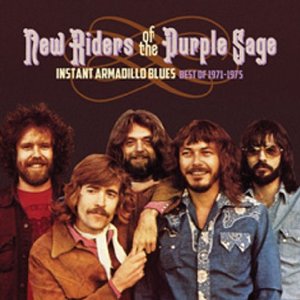Related Research Articles

Armadillos are New World placental mammals in the order Cingulata. They form part of the superorder Xenarthra, along with the anteaters and sloths. 21 extant species of armadillo have been described, some of which are distinguished by the number of bands on their armor. All species are native to the Americas, where they inhabit a variety of different environments.

William John Clifton Haley was an American rock and roll musician. He is credited by many with first popularizing this form of music in the early 1950s with his group Bill Haley & His Comets and million-selling hits such as "Rock Around the Clock", "See You Later, Alligator", "Shake, Rattle and Roll", "Rocket 88", "Skinny Minnie", and "Razzle Dazzle". Haley has sold over 60 million records worldwide. In 1987, he was posthumously inducted into the Rock and Roll Hall of Fame.

Saxon are an English heavy metal band formed in Barnsley in 1975. As leaders of the new wave of British heavy metal (NWOBHM), they had eight UK Top 40 albums during the 1980s including four UK Top 10 albums and two Top 5 albums. They had numerous hit singles on the UK Singles Chart and experienced success all over Europe and Japan, as well as in the United States.
Peter Franklyn Bellamy was an English folk singer. He was a founding member of The Young Tradition and also had a long solo career, recording numerous albums and touring folk clubs and concert halls. He is noted for his ballad-opera The Transports, and has been acknowledged as a major influence by performers of later generations including Damien Barber, Oli Steadman, and Jon Boden.
"I'll Take You Home Again, Kathleen" is a popular song written by Thomas Paine Westendorf (1848–1923) in 1875.. In spite of its German-American origins, it is widely mistaken to be an Irish ballad.
"Captain Wedderburn's Courtship" is an old Scottish ballad dating from 1785 or earlier. It is Child Ballad #46, Roud 36. It is known by a number of titles, including "Lord Roslin's Daughter" and "The Laird of Rosslyn's Daughter".

The Apple Wassail is a traditional form of wassailing practiced in the cider orchards of Southern England during the winter. There are many well recorded instances of the Apple Wassail in the early modern period. The first recorded mention was at Fordwich, Kent, in 1585, by which time groups of young men would go between orchards performing the rite for a reward. The practice was sometimes referred to as "howling". On Twelfth Night, men would go with their wassail bowl into the orchard and go about the trees. Slices of bread or toast were laid at the roots and sometimes tied to branches. Cider was also poured over the tree roots. The ceremony is said to "bless" the trees to produce a good crop in the forthcoming season. Among the most famous wassail ceremonies are those in Whimple, Devon and Carhampton, Somerset, both on 17 January.
"500 Miles" is a song made popular in the United States and Europe during the 1960s folk revival. The simple repetitive lyrics offer a lament by a traveler who is far from home, out of money and too ashamed to return.
Old Brown's Daughter was an English music hall song, sung by Alfred Vance, and became a Newfoundland folk song. It was written by G. W. Hunt (c.1837–1904), circa 1878, although it is often wrongly credited to Johnny Burke (1851–1930). It was in the repertoire of English folk singer Walter Pardon on his 1975 album, A Proper Sort. Peter Bellamy also sang a version of Old Brown's Daughter on his 1975 self-titled album. In 1991, Damien Barber recorded the song for Fellside Records and it was released on the compilation Voices in 1992. The melody was rewritten by Newfoundland singer/songwriter Ron Hynes and Hynes' version was covered by Great Big Sea on their 1999 album, Turn.
"Mrs. McGrath" is an Irish folk song set during the Peninsular War of the early 19th century. The song tells the story of a woman whose son enters the British Army and returns seven years later having lost his legs to a cannonball while fighting against Napoleon presumably at the Battle of Fuentes de Oñoro. The general theme of the song is one of opposition to war. Along with "Johnny I Hardly Knew Ye", it is one of the most graphic of all Irish folk songs that deal with sickness and injuries caused by warfare. Irish folk song collector Colm Ó Lochlainn described "Mrs. Grath" as "known to every true born citizen of Dublin". It was very popular among the Irish Volunteers in the years leading up to the 1916 Rising and has been recorded by many singers and folk groups.
"Dark as a Dungeon" is a song written by singer-songwriter Merle Travis. It is a lament about the danger and drudgery of being a coal miner in a shaft mine. It has become a rallying song among miners seeking improved working conditions.
Captain Ward and the Rainbow, or Ward the Pirate, is Child ballad 287. It recounts a tale of the pirate Captain Ward, likely Jack Ward.
"My Boy Jack" is a 1916 poem by Rudyard Kipling. Kipling wrote it for Jack Cornwell, the 16-year-old youngest recipient of the Victoria Cross, who stayed by his post on board the light cruiser HMS Chester at the Battle of Jutland until he died. Kipling's son John was never referred to as "Jack". The poem echoes the grief of all parents who lost sons in the First World War. John Kipling was a 2nd Lt in the Irish Guards and disappeared in September 1915 during the Battle of Loos in the First World War. The poem was published as a prelude to a story in his book Sea Warfare written about the Battle of Jutland in 1916. The imagery and theme is maritime in nature and as such it is about a generic nautical Jack, though emotionally affected by the death of Kipling's son.

"Donkey Riding" is a traditional work song or sea shanty originally sung in Canada, Scotland and the Northeastern United States. It has also become popular as a children's song. The earliest written record of the song dates to 1857. The tune and words are an adaptation of "Highland Laddie". It is generally, but not universally, agreed that the "donkey" of the song title is a reference to the steam donkey, a kind of general-purpose steam engine. Stan Hugill, a sea-music historian, said that he had been informed that the song was also sung in the Gulf Ports as well as being popular at sea.

Instant Armadillo Blues is a two-CD compilation album by the country rock band the New Riders of the Purple Sage. Subtitled Best of 1971–1975, it contains songs selected from the first seven New Riders albums. It was released in Australia on the Raven Records label on November 21, 2011.
"The Shoals of Herring" is a ballad, written by Ewan MacColl for the third of the original eight BBC Radio balladsSinging the Fishing, which was first broadcast on August 16, 1960. Ewan MacColl writes that the song was based on the life of Sam Larner, a fisherman and traditional singer from Winterton-on-Sea, Norfolk, England. Liam Clancy, who performed the song for decades, tells a more nuanced story, saying that MacColl "tape recorded all the old fisherman up along the east coast of England. And he never used one word of his own. ... He rhymed the lines that the fishermen had given him, and he made it into a song..."
"Boots" is a poem by English author and poet Rudyard Kipling (1865–1936). It was first published in 1903, in his collection The Five Nations.
"Cold Blow and a Rainy Night / Cold Haily Windy Night / Let Me In This Ae Nicht / The Laird o’ Windy Wa's" is an English folk song which has been recorded by numerous musicians & musical groups including James Bowie, Jeannie Robertson, Steeleye Span, Martin Carthy, Planxty, and The Exiles.
"The Moon Shines Bright" is an English folk song which has been recorded by The Valley Folk, Shirley Collins, Ram's Bottom, and Sam Lee.
"A Pilgrim's Way" is one of the most popular of poems by Rudyard Kipling. It was set to music by Peter Bellamy, and has been recorded by Cockersdale, Finest Kind, John Roberts & Tony Barrand, Damien Barber & Mike Wilson, as well as the band Pilgrims’ Way.
References
- ↑ "The Kipling Society". The Kipling Society. Retrieved 10 February 2024.
- ↑ "Edward German". National Library Of New Zealand. Retrieved 10 February 2024.
- ↑ "Keep On Kipling" . Retrieved 10 February 2024.
- ↑ "Bonnet & Shawl" . Retrieved 10 February 2024.
- ↑ "When Our Grandfathers Said No" . Retrieved 10 February 2024.
- ↑ "Peter Dawson" . Retrieved 10 February 2024.
- ↑ "Rolling Down To Rio - MudCat" . Retrieved 10 February 2024.
- ↑ "The Beginning of the Armadillos / Roll Down to Rio" . Retrieved 10 February 2024.
- ↑ "A Folk Song A Day: Song List" . Retrieved 24 January 2024.
- ↑ "365 Days Of Folk: Song List" . Retrieved 24 January 2024.